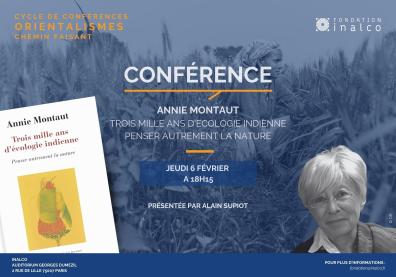Contemporary Indology at Inalco (2)

Three thousand years of Indian ecology. Thinking nature differently
Since its distant origins, Indian civilization has never ceased to interweave the idea of the human with that of the cosmic order and its components: water, forest, earth and fire. The ecological thinking and struggles of contemporary India, which form the essential focus of this book, thus extend ancient speculations on the inseparability of nature and culture.
The fruit of several millennia of experience, current agro-ecological practices are attentive to the interaction between the actors and the specific environment in which they work: one cannot take care of an element, be it water, plants or land, without at the same time taking care of the use made of it, and of the just rewards, moral and material, of those who take care of it.
These practices consolidate the bond between humans and the environment: this bond of friendship, rather than predation, highlights the values associated with the feminine and the role of women working on the bangs of affluent society. The lessons to be drawn from this "ecology of the poor" are of interest not only to India, but to all countries today faced with the degradation of their vital environments.
Annie Montaut is Professor Emeritus of Hindi and Linguistics at Inalco, and a member of the Centre d'études sud-asiatiques et himalayennes (EHESS-CNRS); she is the author of numerous books and articles on modern Indian linguistics and culture, including Le Hindi, grammaire linguistique, (Société de Linguistique de Paris, Peeters), Liens de parenté et liens de voisinage: l’exemple du hindi (in press) and L'Esprit de la nature : Raza (L'Asiathèque). She has also translated some thirty Indian works, including Hind Swaraj. L'émancipation à l'indienne by Gandhi ("Poids et mesures du monde", Fayard) and Ret samadhi by Geetanjali Shree (Éditions des Femmes), a novel that won the International Booker Prize in 2022.